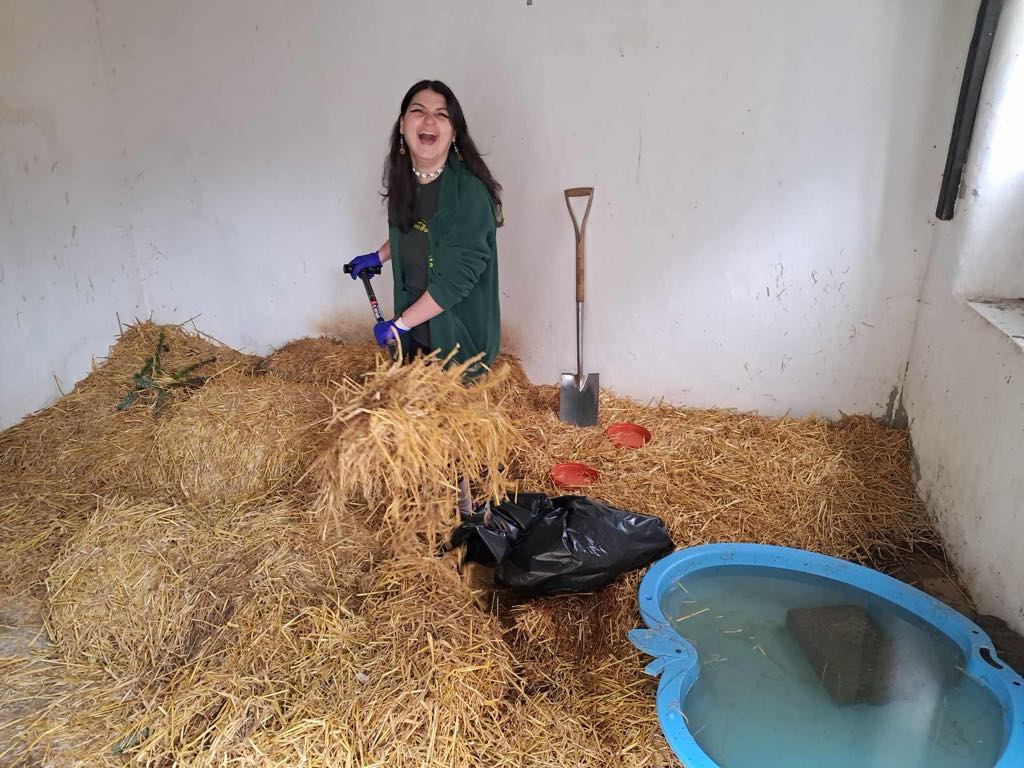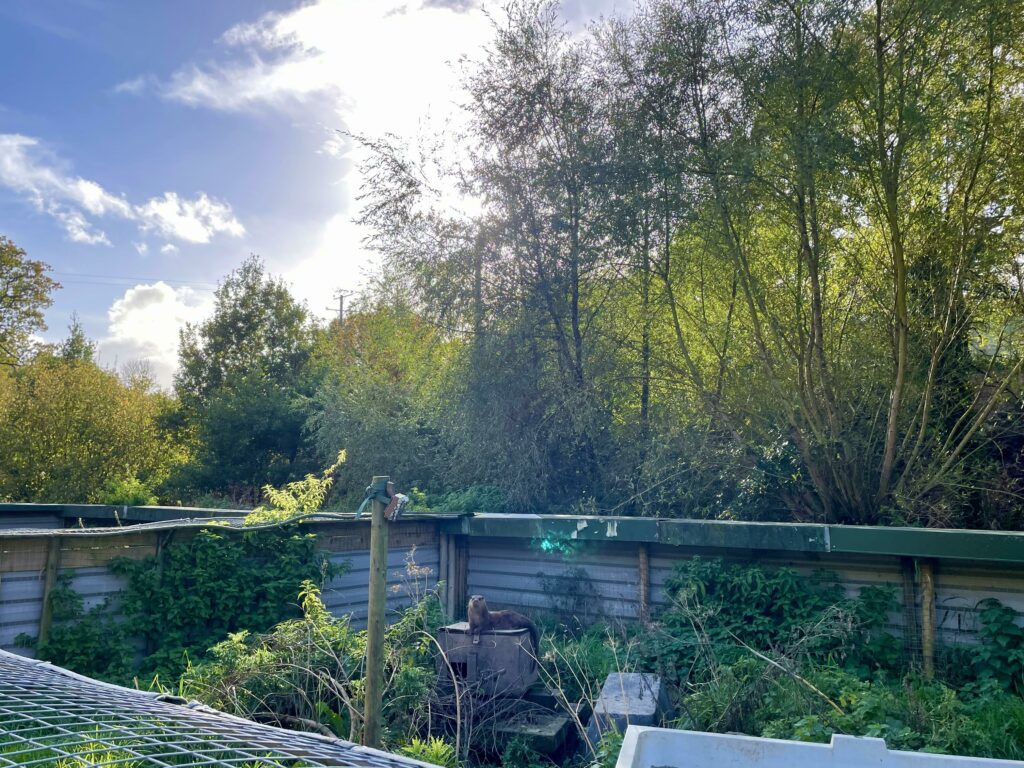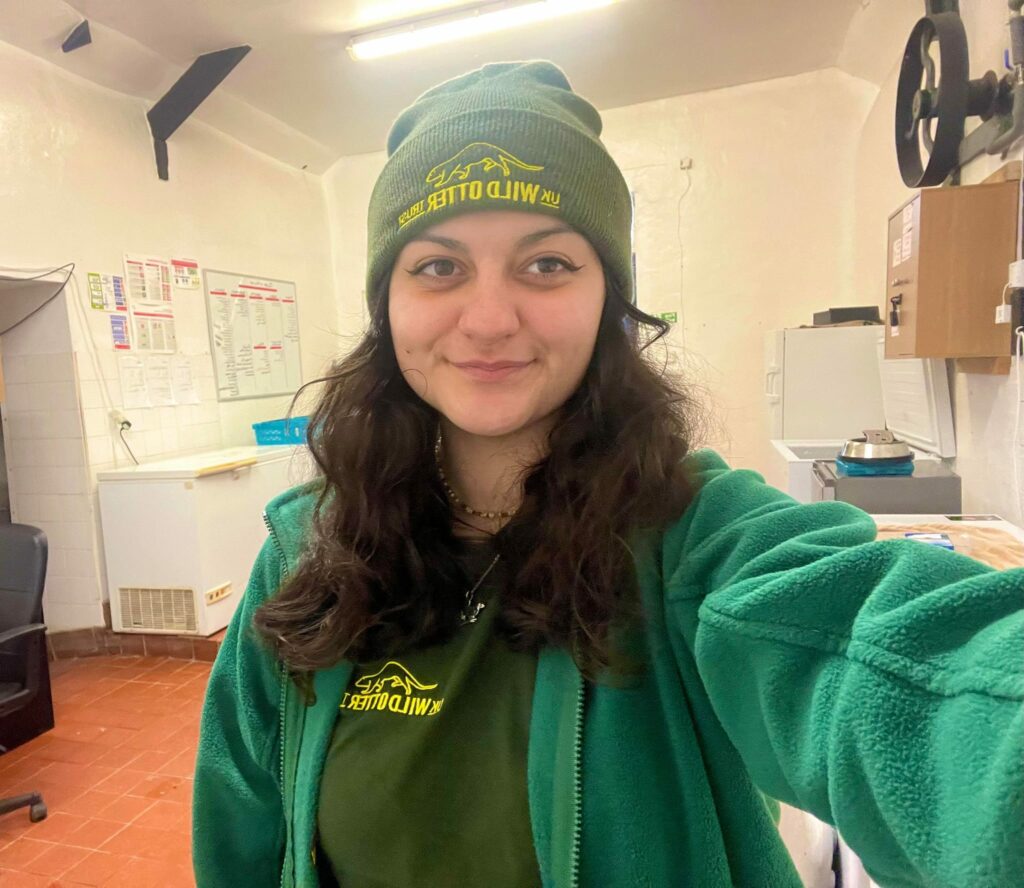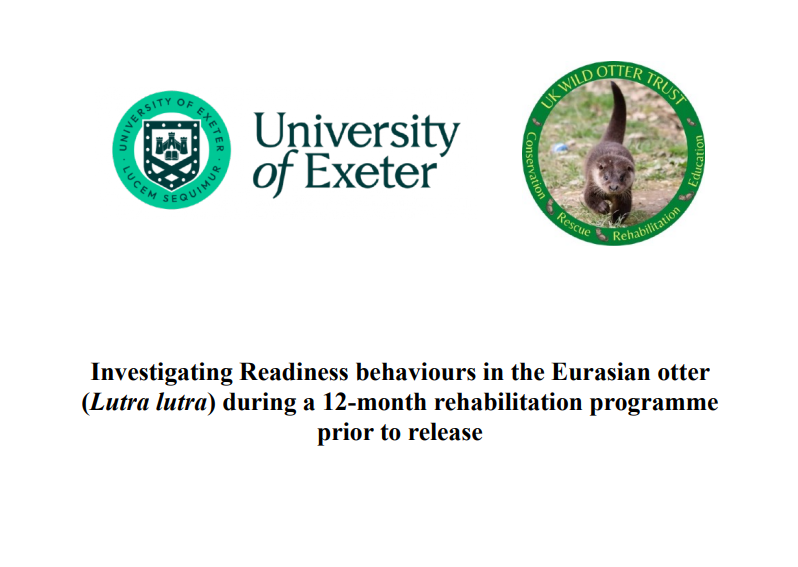Marie Marwood undertook a year long placement at our Specialist Otter Rehabilitation Centre in Devon whilst on her placement year during university. As part of her placement she carried out a research project, titled ‘Investigating Readiness behaviours in the Eurasian otter (Lutra lutra) during a 12-month rehabilitation programme prior to release’. Marie has shared her experiences during her research study below.

“I still feel incredibly lucky to have spent my university placement year at UKWOT, where I gained extensive knowledge about Eurasian otters and their rehabilitation. I learned how crucial the assessment of ‘readiness’ behaviour is within wildlife rehabilitation, as it determines the chances of successful reintegration into the wild upon release.”
“This study was inspired by my second year module, “Observations and experiments in animal behaviour” as well as witnessing Dave’s insightful observations on otter behaviour. Realising that there was little research on Eurasian otter behaviour in rehabilitation in the UK, I felt compelled to explore the topic. Therefore, my research question focused on whether otters later in rehabilitation display more ‘readiness’ behaviours than otters earlier in rehabilitation.”
“This was carried out through indirect observations with a recording device to collect approximately 1000 minutes of footage of 13 otters. 3 groups had been in rehabilitation for less than 6 months and the other 3 spent more than 6 months in rehabilitation. The ‘readiness’ behaviours were separated into 5 categories: affinity with water, activity levels, social interaction, navigation skills and normal behaviours.”

“Upon comparative analysis of the data, I found no statistically significant difference, leading me to reject my initial hypothesis. Although, I knew that my project would be able to provide insight and a preliminary analysis for future study. I thoroughly enjoyed this project and I thank everyone who supported me through it. Additionally, I am proud to say that I received a first-class mark on this report which goes towards my undergraduate degree. For anyone who has the time to read the full 17-page report about otters, I hope you enjoy it and I hope that there will be further study on this topic to deepen our understanding of otter rehabilitation.” – Marie.

At the UK Wild Otter Trust, we often have students carrying out work experience or gap year placements at our Specialist Otter Rehabilitation Centre, many of whom carry out research projects whilst they are with us. All research projects the UKWOT take part in are non-invasive and are monitored to ensure that there is no impact on the rehabilitation process. If you have any research projects we can assist with please send at email to info@ukwot.org.


